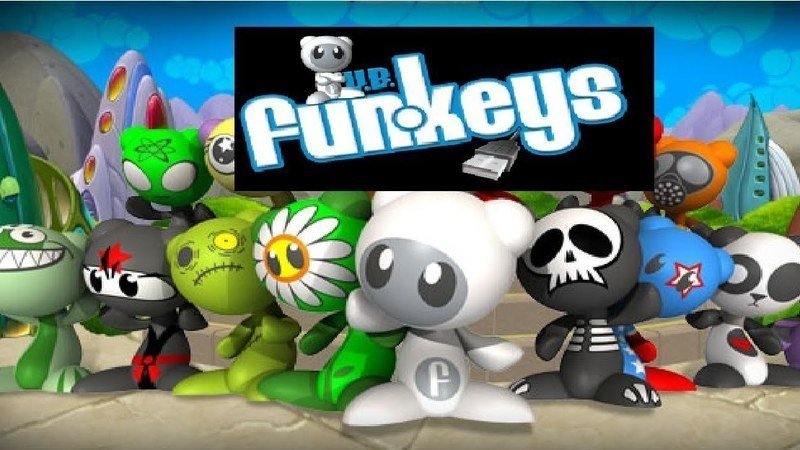My offline role
“I am currently a third-year student doing a minor in Digital Humanities at Leiden University.”
This is definitely how I introduce myself to people I meet in the university or for the first time, thus, I consider it as my offline role, a full-time student and sometimes working as a Graphic Designer. They are both common knowledge that everyone might have an idea of the state of life to define me.
My online role
I have been listening to K-Pop for (at least) ten years and active on social media for the whole time. I met people online and to people having the same interest as mine, I will introduce my nickname, my K-Pop favorite groups, and my favorite members. The first time I used the Internet was when I was around eight years old, completely anonymous with a K-Pop profile avatar and a username that was not my real name.
Until now, only some social media where I actually use my real identity information to contact people that I know in real life, otherwise, I still use fake names and K-Pop idol avatars, for example, Tumblr, Pinterest, and Twitter,… My favorite online role is definitely being an admin on a Facebook Fanpage of my favorite K-Pop idol.

A discourse on K-Pop prosumers as a collective force of free promoters and laborers.
What I find prominent about being a K-Pop fan at a young age is that instead of unilateral consumption, it plays an empowerment role that could motivate the fans to bilaterally contribute to their favorites and the fandom.
Prosumer, a portmanteau of producer and consumer, refers to consumers who actively engage in the production of certain products or services (Lee, 2021).
On social online platforms, people basically can transform themselves into anyone that they want to be, and break the physical barriers to participate in any kind of activities based on their preference. The thing about fandoms and online platforms is mostly about imagination. Because people are anonymous, you hardly get an idea of who it is behind the screen. On the one hand, they can turn themselves into anyone, on the other hand, society will make stereotypes and generalize them in one image representing the whole group of people, thus, the image of K-Pop fans is generalized into an image of an overhyped and anti-social 14-year-old fangirl. Meanwhile in the fandom, because of the absence of physical differences, everyone can be connected to each other as long as they have the same favorite groups, like-minded ideas, and the same purposes for what they want to do, as a result, we have several fan communities for each K-Pop group. Therefore, the connection among people within the fandom is not only exclusive between the idols and the fans, but also the relationship between an individual and their association with their “alternative social community”.
“Fandom is now recognized culturally and socially as a form of participatory culture (Jenkins, 1992b), whereby fans attach emotions to the objects of their fandom (Hills, 2002, pp. 99–121, 149–160) and cultural meanings to fan practices (Fiske, 1989b, pp. 23–47).”
Sun, 2020
From individual levels to social levels, K-Pop fans have been stigmatized as lunatics and excessive enthusiasts who apparently could do the craziest things for people who barely know them and are so dedicated to a lot of works like fanfiction, fanmade videos, making translated and subtitles, producing and distributing merchandise,…, however, on individual levels, I found it interesting when they show their self-expression, knowledge, and specialty in a certain field to work on what they like to do.


As every K-Pop fan who is deemed as a free promoter, or “specialized labor”, “managerial labor”, and “unskilled labor”, the way they enjoy themselves in the virtual world has made a huge impact in the real world. They are seen as “unpaid immaterial labor” through their prosumer works related to creative industries including cultural products like arts, media, and design artworks. Lazzarato (1996) defines immaterial labor as “the labor that produces the informational and cultural content of the commodity” (p.133). (Sun, 2020)
Recently, following the rise of K-Pop and its global recognition, they might move to a postmodern phase when the culture is over-commercialized and populated to the extent that the capitalist companies realize the potential business model, thus, take all advantage of it to turn it into soft-power and marketing strategies.
“Producers and prosumers will come together in a ‘content universe,’ and you will be able to experience an era where SM’s killer content becomes ‘re-creatable content of prosumers’ expanding limitlessly into recreated content reproduced by prosumers,”
Lee Soo Man – CEO of SM Entertainment. (Lee, 2021)

The overlap between the two roles and how they contribute to my identity.
The informal, anonymous, and flexible role on the Internet allows the fans (and me) to invest my free time, my money, and skills to explore my potential, creativity, and self-actualization on many levels, from early approaching to hard skills like video editing, managerial skills like event management, to making friends locally, talking and having cultural exchange to people transnationally.
When I go to university, thanks to my remarkable stickers, people who have the same interest as mine, easily recognize me and we tend to be good friends 🙂
References:
Lee, M. (2021, June 29). SM Entertainment aims to include more ‘prosumer’ fans in biz: Chief. Yonhap News Agency. Retrieved October 18, 2022, from https://en.yna.co.kr/view/AEN20210629008600315
Sun, M. (2020). K-pop fan labor and an alternative creative industry: A case study of got7 Chinese fans. Global Media and China, 5(4), 389–406. https://doi.org/10.1177/2059436420954588




I really love your blog because I’m also a huge fan of K-POP!!! I’m a heavy user of Twitter and thanks to it, I made some friends who can share each other’s feelings. ‘Anonymous’ makes us being honest, so we can easily talk about artists! I really want to recognize you and have a K-POP chat 🤩
K-pop fandom taking the role of the prosumer has been commonly observed in Korea both online and offline! (As far as I remember)
A lot of offline fan art/ fan fiction markets for sure! also, sometimes you can see the big banner of the k-pop idol’s birthday celebration poster in the subway, which is often made by fans. I also think this culture of creating fan-based prosumers and actively collaborating with them, often opens the possibility for small entertainment companies still can be advertised their singer and idol groups through their fans, even though they don’t have enough budget for reaching out to many audiences like other big entertainments do (such as SM and JYP)
Listening to K-pop and joining online communities like you, my cousin and I formed a cover group to dance to K-pop. Even though we are not active anymore, I became good friends with them. When we meet up we often eat Korean food, listen to K-pop etc. Making online friends through online platforms once was scary, but now technology has become a big part our world meeting strangers from the internet offline has become not frowned upon.
Compared to the past, these days in The Netherlands there are many offline events where K-pop fans can meet. I think that online platforms and easy access to internet now, has played a huge part in spreading the Korean wave around the world made possible by promoters(fans and company). I think the cool part about the spread of Korean music/dramas resulted in interest in the culture, language and food. These days in The Netherlands there are a lot of new Korean restaurants. I think its cool how k-entertainment can result in peaking interests in different parts of South Korea, e.g. food.
while I consider myself more of a casual K-Pop enjoyer, I definitely did have a phase years ago where I obsessed over One Direction, so I definitely understand the feeling of being able to meet new people through your passion and have an entirely new internet persona when related to some hobbies – I feel like it’s one of the wonders of being able to completely pick and choose what parts of your personality and interests you might want to showcase online.
Digress aside, I really find the kpop fan hustle incredibly interesting and motivating. I have a few friends that are deep into the picture trading community and the way they treat every transaction is honestly almost business-like, it’s crazy – in a good way! I definitely am curious to see if the consumer power of k-pop fans, both online and offline, will be recognised and acknowledged in Europe soon, as the music is slowly starting to become more mainstream here as well.